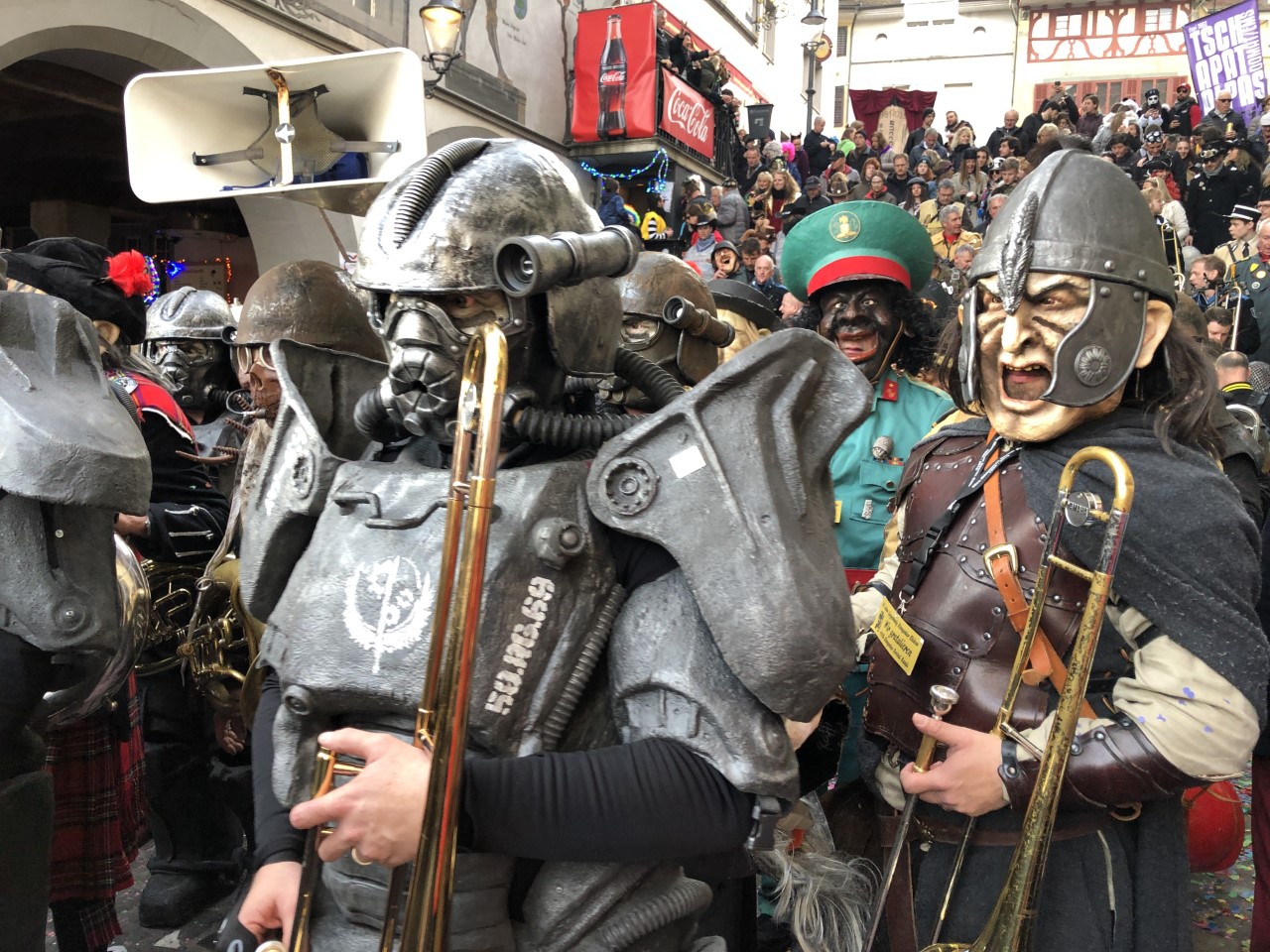Guggenmusik is relatively new to the UK and understandably not very well known!
This of course could have something to do with the fact that there are only two Gugge bands in the UK!
So, what is Guggenmusik?
Guggenmusik translates as ‘lively music’ and certainly seems to bring the best out of both those who perform it and those who are entertained by it. Gugge bands can vary in size, often as many as 60 players in Switzerland, the home of Guggenmusik.
Bands combine large percussion sections including bass drums and trolley mounted kit drums with brass sections of trumpets, trombones, euphoniums and sousaphones.
The music they play is mostly popular music (old and new chart hits) with some traditional ‘Gugge’ pieces.
Performance is as much about visual impact as it is about the sound. The first thing that catches the eye is the colourful costumes influenced by the traditions of ‘Fasnacht ’ (carnival). Swiss bands often wear elaborate head gear.


